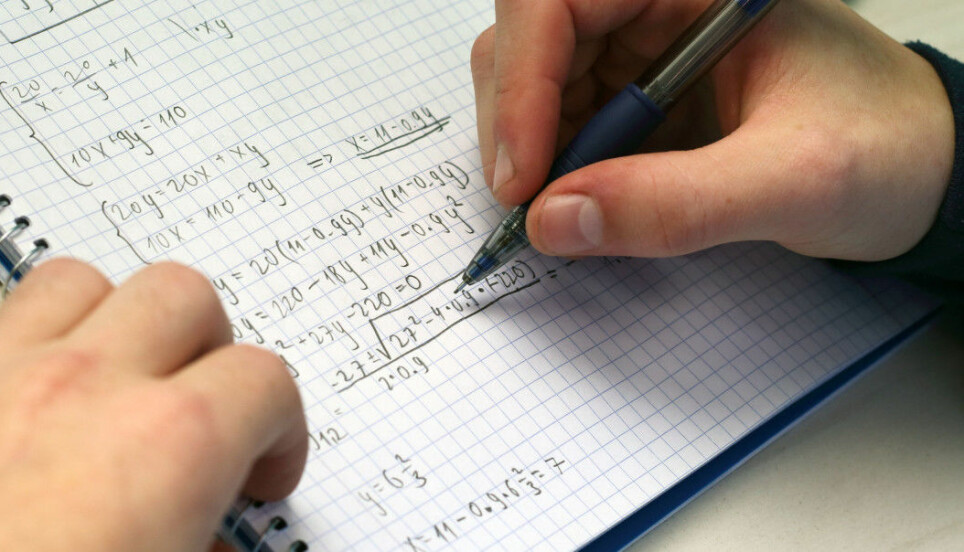
Pupils’ skills no better after more math and science classes
Pupils in Denmark receive more mathematics instruction than their Norwegian, Swedish and Finnish counterparts. Yet they still do worse in the subject than Norwegian and Finnish students.
TIMSS is an international survey that measures students' competence in mathematics and science in grades five and nine in about 60 countries. It also measures students’ well-being at school.
The results from the 2019 survey were recently published.
The survey showed that Norwegian students in 5th grade did very well in mathematics. They scored higher than their peers in the other Nordic countries. In Europe, they rank among the best performers.
Norwegian students also did well in science. They were on a par with their Swedish peers, while Finnish pupils scored a little higher.
Still disappointing
Ninth grade Norwegian pupils perform at an average level, according to the international TIMSS survey.
But the 2019-survey results show a decline in both mathematics and science scores in ninth grade, compared to the 2015 survey. The decline in mathematics is small, while there's been a larger dip in science.
Too little instruction?
One explanation may be that very few class hours have been dedicated to teaching science at the lower secondary level in Norway.
“Of the more than 60 countries that participate in TIMSS, Norway is one of the countries with the fewest hours of science instruction at the lower secondary level,” says Hege Kaarstein.
She is a researcher in the Department of Teacher Education and School Research (ILS) at the University of Oslo and heads the Norwegian part of TIMSS.
The international average is 138 class hours of science instruction per school year, whereas Norway only provides 88, far less than in neighbouring Nordic countries.
Norway’s political right wants reform
Mathilde Tybring Gjedde from the Norwegian Conservative Party tells NRK that what's happening at the lower secondary level must be taken seriously.
The Conservatives want to implement school reforms to strengthen student motivation at the lower secondary level.
They also want to introduce more lessons in mathematics and science at the intermediate level, she says.
But what happened with the Danes?
Denmark is rarely mentioned when Norway compares itself to the other Nordic countries.
Six years ago, Denmark implemented primary school reforms, which increased the teaching hours. The subjects of Danish and mathematics were especially targeted for strengthening.
This is the first TIMSS survey after this reform.
The latest survey probably came as a shock to Danish education politicians.
Danish pupils’ mathematics skills have fallen significantly. In 2019, their scores had returned to the same level as they were in 2007.
School reform failure?
They cannot see a connection in this survey between the number of teaching hours and pupils’ scores on TIMSS, according to Christian Christerup Kjeldsen.
He is responsible for the Danish TIMSS study at Aarhus University.
In a press release from Aarhus University, Kjeldsen points out that Danish pupils’ scores in mathematics – the subject they received more class time in – have dropped, but their science results remain the same, a subject the pupils received fewer instruction hours in.
Less interest in math
In the 2019 TIMSS survey, a positive connection clearly emerged between the students' perception of the instruction and their results.
The Danish survey also indicates that pupil interest in mathematics declined.
Danish pupils rate the subject as less well taught, compared with students in other Nordic countries.
Kjeldsen is worried. He believes that the decline in their school mathematics curriculum indicates a serious loss of education.
Translated by: Ingrid Nuse.
———
Read the Norwegian version of this article at forskning.no































